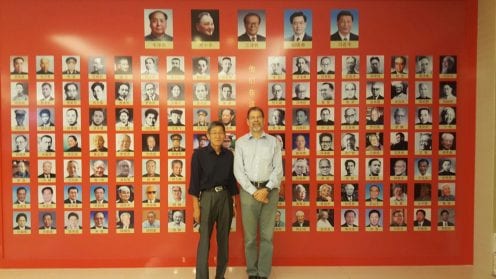New University Presses
By ucyllsp, on 24 October 2016
On 12 October, some of the UCL Press team attended the launch of the first book published by the recently established University of Westminster Press, a fellow open access press. It was a well-attended event that took place in the beautiful Fyvie Hall in the Regent Street Campus. Speeches by the Provost, Professor Graham Megson, and the Press Manager, Andrew Lockett, described the motivations behind the setting up of an open access press. Professor Christian Fuchs, described as one of the world’s leading theorists of digital media, and author of UWP’s launch title, Critical Theory of Communication, spoke engagingly about the book, which offers a vital set of new insights on how communication operates in the age of information, digital media and social media. This is the first book in the Critical Digital and Social Media Studies series (edited by Professor Fuchs), which has a promising list of titles to look forward to.
University of Westminster Press is one of four new open access university presses that launched in 2015, of which UCL Press was the first, followed by UWP, White Rose University Press (a consortium of Leeds, Sheffield and York universities) and Cardiff University Press. In further UK university press developments, Goldsmiths Press launched its first title in May this year, and declares its interest in publishing non-traditional works that explore the very purpose of why academics publish. And just this week, Policy Press (established at Bristol University 20 years ago), announced that they would be expanding to establish University of Bristol Press, with a wider remit.
This revival of interest in university presses saw the establishment of a conference earlier this year, the University Press Redux, the first conference to be held in the UK dedicated to university presses, and initiated by the Academic Book of the Future project (we look forward to its report, due out later this year after a two-year study by academics at UCL and Kings College London). One-hundred-and-fifty delegates from UK, US and European university presses – large and small, new and old – gathered to discuss industry developments and challenges. Those discussions are reflected in a special open access issue of Learned Publishing, the journal of the ALPSP (Association of Learned and Professional Society Publishers). Featuring articles by the heads of various university presses including California, Manchester, Liverpool, UCL, Westminster and Goldsmiths, the issue is a fascinating snapshot of the university press scene and scholarly publishing at a pivotal moment in its history. Read more here.
Lara Speicher
Publishing Manager, UCL Press
24.10.16
 Close
Close





